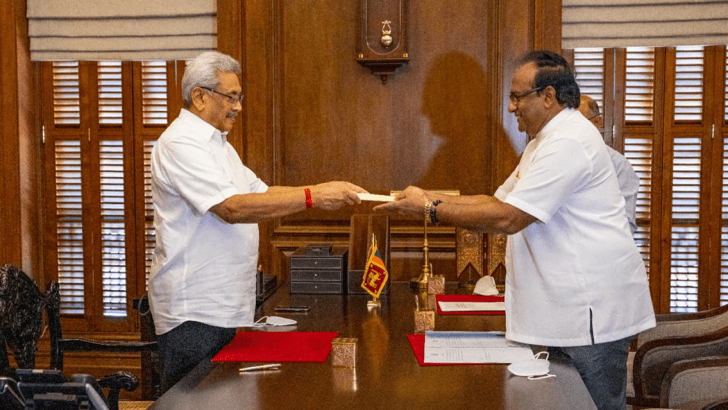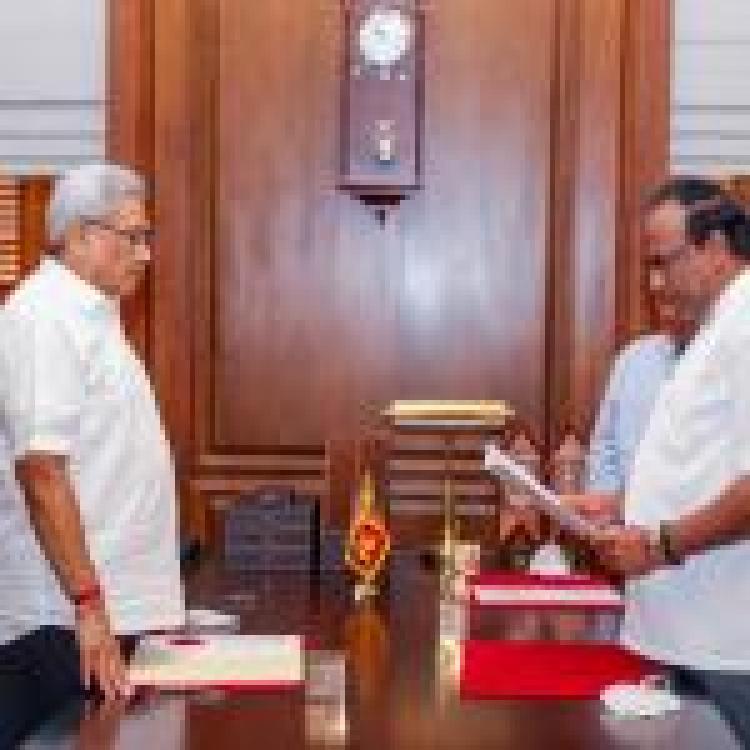
Sri Lanka’s new minister of public security boasted that military intelligence networks have been “strengthened” and “back on track” in a wide ranging interview, as he once again reiterated his calls for the Tamil National Alliance (TNA) to be banned.
Speaking to the Sunday Observer, retired Rear Admiral Sarath Weerasekara said that there had been a “breakdown of the intelligence service” under the previous government, revealing how military networks had been expanded even after the end of the armed conflict in 2009.
“We won the battle against terrorism on May 19, 2009,” Weerasekara stated. “At that time we had only three intelligence battalions. Thereafter we increased it to seven battalions.”
“From that you can understand the importance of the intelligence service. That intelligence network was destroyed by the Yahapalana Government. Earlier, we had informants everywhere, such as in temples, churches, five star hotels, normal hotels and even by the side of the roads.”
“Whenever something happened, we get the information,” he added. “That network was destroyed during the Yahapalana regime. We have strengthened that network and it is now functioning well.”
Speaking on the Eastern Province, the minister went on to say that the military is “increasing surveillance in that area”.
“We have deployed our intelligence people and informed the Security Forces in the area,” he continued. “We have increased our mobile patrols and planted certain informants there and they will give us all information required. Not only in Kattankudy, we have laid emphasis on certain other areas as well.”
“That network had been disrupted during the former Yahapalana regime. We are back on track and will get all information we need.”
The minister, a long standing Rajapaksa supporter and infamous for his hard line views, went on to slam the Tamil National Alliance, stating that even speaking “with other countries to introduce federalism in our country” was against the Sri Lankan constitution.
“When we defeated the most ruthless terrorist outfit in the world, the LTTE’s proxy and political arm, the TNA was not banned,” he continued. “That could have been a ‘mistake’ by the then President Mahinda Rajapaksa because he was sympathetic towards the Tamil politicians. He forgave the Tamil politicians. Now the TNA is taking advantage of it. The TNA is an LTTE proxy.”
In particular, Weerasekara took aim at TNA spokesperson MA Sumanthiran, stating he had “audacity to pay respect to a killer of our security forces personnel by keeping his own STF escort outside his house,” referring to Maaveerar Naal commemorations last week. Tamils around the world paid tribute to those who died fighting in the armed liberation struggle, with many Tamil politicians holding private remembrance events across the North-East.
“Such high-handed acts must stop with immediate effect,” said Weerasekara. “Sumanthiran and other Tamil politicians who are always making hate speeches against the Sinhalese should be banned from coming to Parliament.”
Last week, the International Truth and Justice Project (ITJP) and Journalists for Democracy in Sri Lanka (JDS) released a dossier on Weerasekara, highlighting his alarming comments on devolution, his anti-TNA stance and how he has advocated violence to those he opposes.
Amongst the many remarks he has made, Weerasekara has said that NGOs and civil society activists should be charged with treason and sentenced to death, called the singing of the Sri Lankan national anthem in Tamil “illegal and the betrayal of our race” and claimed Sri Lanka “ is being humiliated” at the United Nations.

